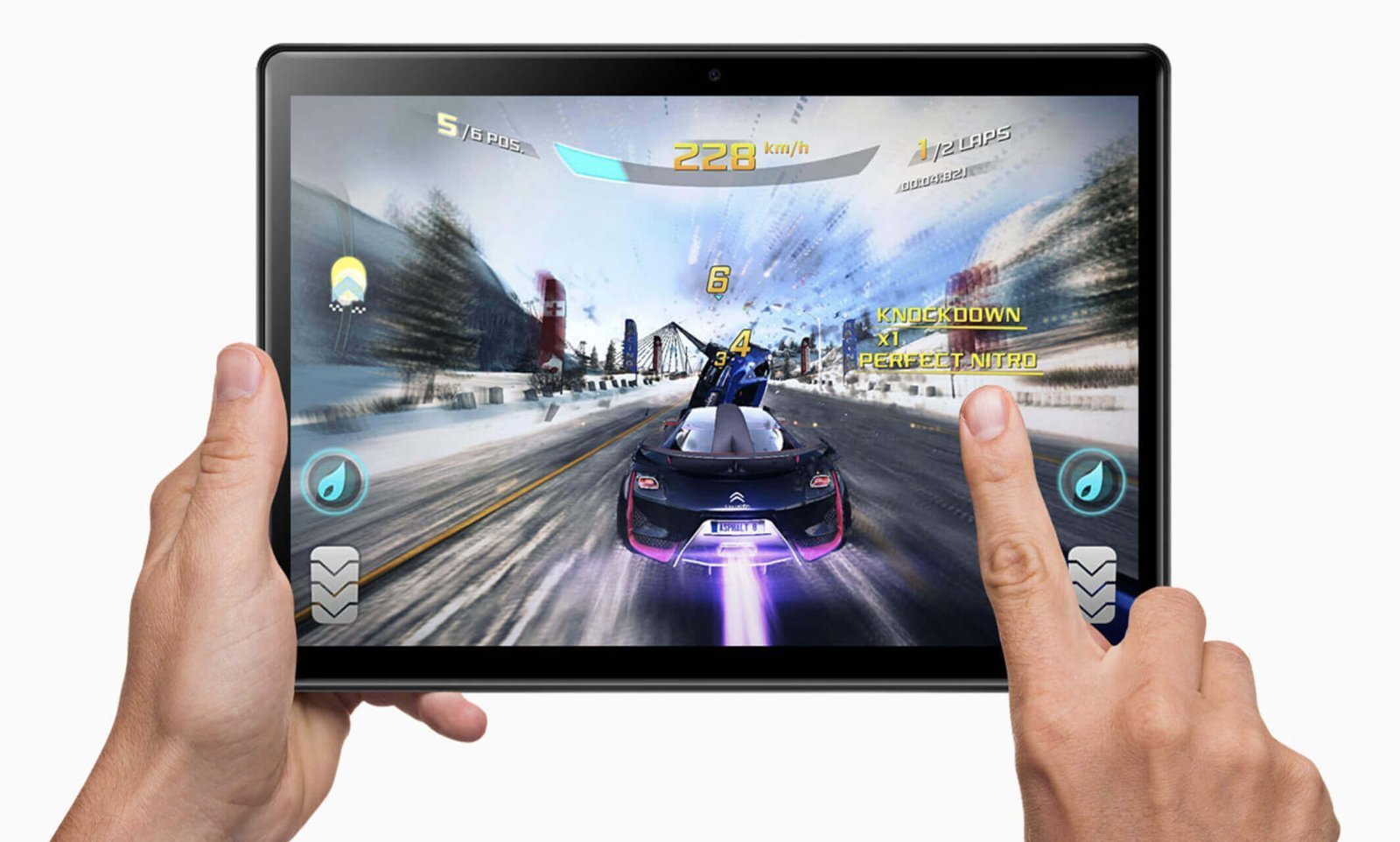
Ever wondered if a tablet could truly replace your gaming laptop? In 2025, the answer is a resounding yes. Modern high-power gaming tablets meld top-tier mobile SoCs, advanced display technologies, and robust cooling systems—all within sleek, portable frames. Whether you’re smashing heads in FPS titles, exploring vast RPG worlds, or streaming PC AAA games via cloud services, an ultra high-power gaming tablet offers unrivaled freedom.
This guide breaks down everything you need to know: critical specs, seven flagship contenders, in-depth performance analyses, ecosystem integrations, future trends, and a step-by-step decision framework. Let’s level up your on-the-go gaming.
Why Choose a High-Power Gaming Tablet?
Portability Meets Performance
Remember lugging that 5‑pound gaming laptop in a backpack? Today’s gaming tablets trim that down to 1‑1.2 pounds—no compromise on frame rates. Imagine launching Call of Duty: Mobile at max settings anywhere: a coffee shop, a plane seat, or your living room couch.
Evolution of Mobile Gaming Hardware
Early Android tablets struggled beyond 30 FPS on graphically intense titles. The mobile silicon arms race—led by Qualcomm’s Snapdragon X series, Apple’s M-series chips, and custom gaming SoCs—has shattered performance ceilings. Dedicated gaming features (sampling rates up to 300Hz, ultra‑low latency touch) now ensure the smoothest gameplay.
Key Specifications That Matter
Processor & GPU: ARM vs. Custom Silicon
- Snapdragon X Elite & X Plus: Next-gen CPUs paired with Adreno 7-series GPUs—optimized for Vulkan and OpenGL.
- Apple M4: Desktop‑class cores in a mobile form factor; unbeatable single-core performance.
- Custom e‑Sports Chips: ASUS and Razer tune frequencies and drivers for sustained peak clocks.
Display Technology: AMOLED, Mini‑LED, Refresh Rates
A premium gaming tablet demands:
- Panel Type: AMOLED for color depth, Mini‑LED for HDR pop.
- Refresh Rate: 120Hz–144Hz standard; some push to 165Hz.
- Touch Sampling Rate: 240Hz+ for minimal input lag.
Battery Capacity & Fast Charging
High-performance gameplay drains juice fast. Look for 10,000–16,000 mAh cells and 65W+ USB-C PD charging—80% in 45 minutes is ideal.
Thermal Management: Active vs. Passive Cooling
- Active Solutions: Built-in fans (ROG Flow Z13) or attachable AeroActive Coolers.
- Passive Designs: Large heat sinks and vapor chambers in models like Tab S9 Ultra minimize noise but can throttle after extended sessions.
Memory & Storage: LPDDR5X, UFS 4.0
- RAM: 8–16GB LPDDR5X for peak multitasking.
- Storage: 128–512GB UFS 4.0—game installations often exceed 100GB per AAA title.
Top 7 Ultra High-Power Gaming Tablets of 2025
| Tablet | SoC/CPU | Display | Battery | Cooling | MSRP | Link |
|---|---|---|---|---|---|---|
| ASUS ROG Flow Z13 | Intel Core i9 U‑series | 13.4” 120Hz 4K AMOLED | 10,050 mAh | Active fan | $1,499 | https://rog.asus.com/z13 |
| Lenovo Legion Y700 | Snapdragon X Elite | 8.8” 165Hz OLED | 15,000 mAh | Dual heat pipe | $899 | https://www.lenovo.com/legiony700 |
| Samsung Galaxy Tab S9 Ultra | Snapdragon 8 Gen 3 | 14.6” 120Hz Mini‑LED | 11,200 mAh | Passive VC | $1,199 | https://www.samsung.com/tab-s9-ultra |
| Apple iPad Pro 13″ M4 | Apple M4 | 13” 120Hz Liquid Retina XDR | 10,758 mAh | Passive VC | $1,099 | https://www.apple.com/ipad-pro |
| Razer Edge Pro | Snapdragon G4 Gen 2 | 8” 144Hz IPS | 9,200 mAh | Active blower | $699 | https://www.razer.com/edge-pro |
| Xiaomi Black Shark Tab Pro | Snapdragon 8 Gen 3 | 11” 144Hz LCD | 12,600 mAh | Liquid cooling | $749 | https://www.blackshark.com/tab-pro |
| Acer Predator PredatorTab XPD | Snapdragon X Elite | 10.1” 120Hz LCD | 12,000 mAh | Twin fans | $799 | https://www.acer.com/predatortab-xpd |
Read Also Affordable Android Smartwatches: A Complete Guide to Budget-Friendly Wearables
Deep Dive: ASUS ROG Flow Z13
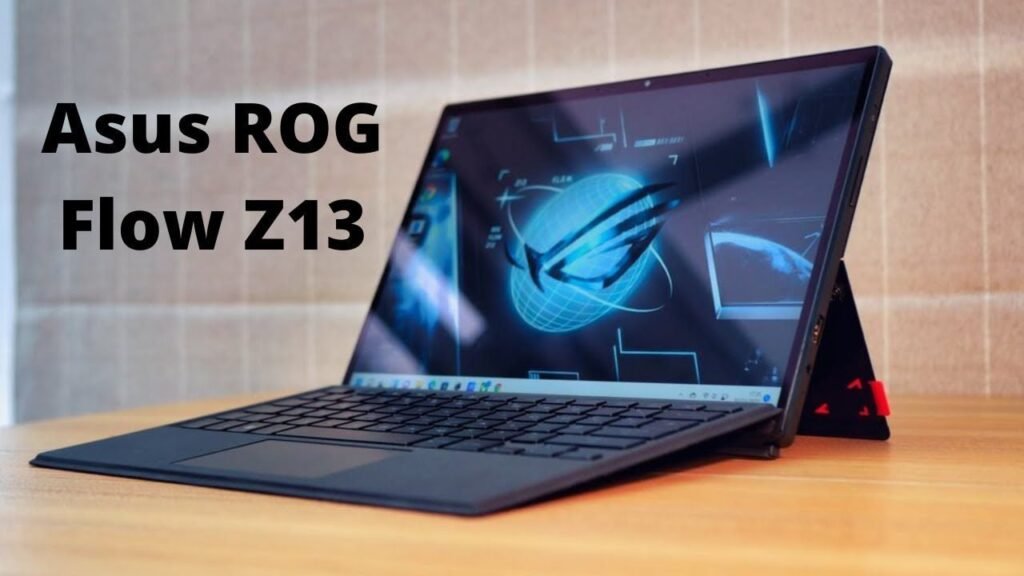
Performance Benchmarks
Powered by Intel’s 12th Gen i9 U-series chip and an external XG Mobile GPU dock option, the ROG Flow Z13 crushes 3DMark Wild Life with scores north of 120 FPS. On native Windows titles via virtualization, expect stable 60+ FPS at near‑native resolution.
Build Quality & Design
A magnesite‑aluminum chassis at 1.25 kg balances sturdiness with portability. The RGB‑lit ROG logo, adjustable kickstand, and magnetic keyboard folio make it a versatile desktop replacement.
Accessory Ecosystem
ROG’s AeroActive Cooler 6 plugs into the Type-C port to drop temps by 10–15°C. The proprietary XG Mobile dock adds desktop‑grade GPUs for uninterrupted ultra settings.
Deep Dive: Lenovo Legion Y700
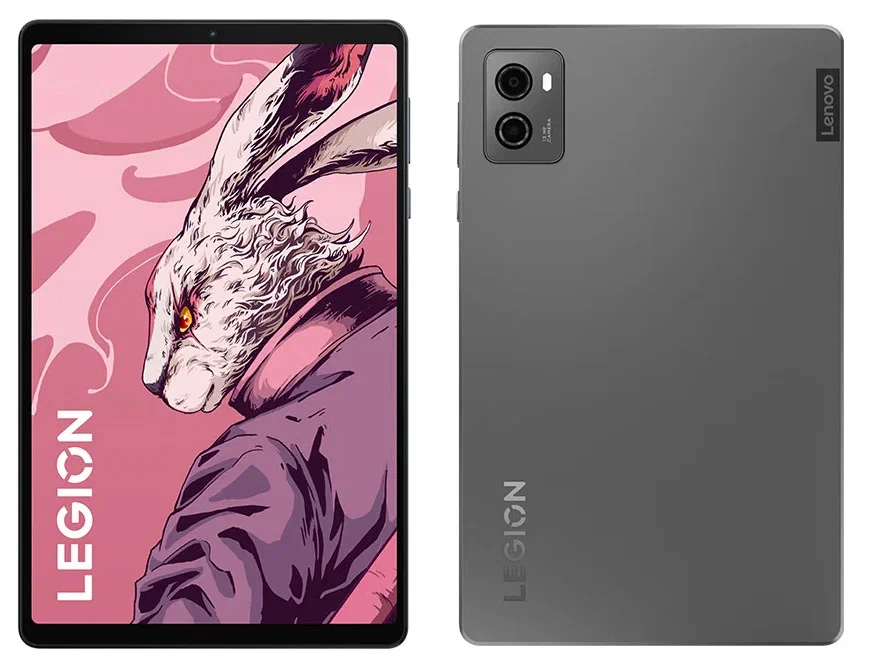
Hardware Highlights
The Legion Y700’s 8.8” OLED hits 165Hz with 0.03 ms response—an esports favorite. The Snapdragon X Elite SoC and dual vapor chamber keep sustained frame rates above 90 FPS in Genshin Impact.
Gaming Modes & Software Features
Legion’s Q-Control 4.0 adjusts power profiles on the fly: from Silent to Ultimate Performance. The Legion Game Zone app centralizes streaming services, system stats, and macros.
Price and Value Proposition
At $899, it undercuts many flagship tablets while delivering uncompromised performance—ideal for hardcore gamers on a budget.
Deep Dive: Samsung Galaxy Tab S9 Ultra
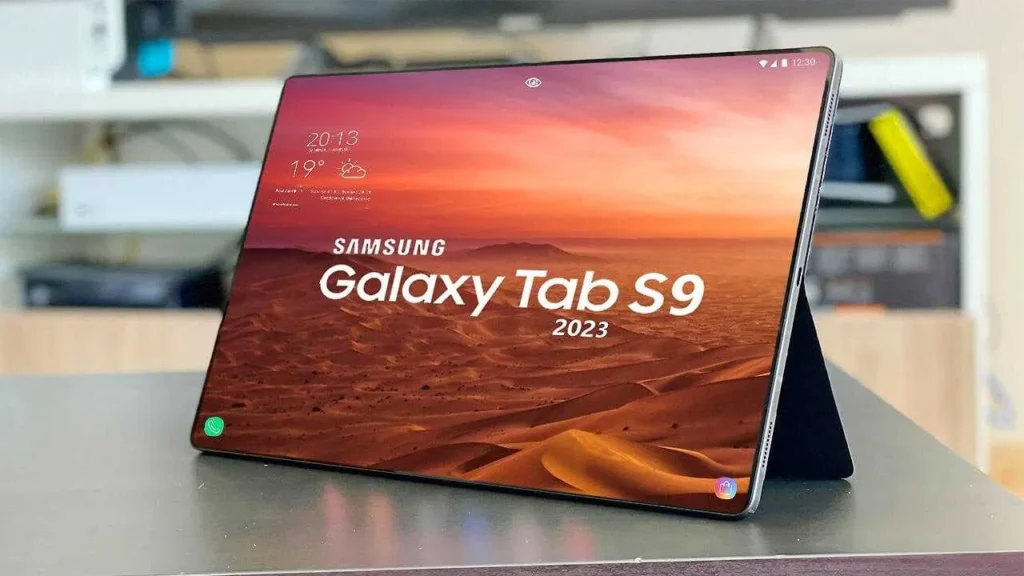
Display & Multimedia Strengths
The 14.6” Mini‑LED boasts 576 local dimming zones, peak brightness of 2,200 nits, and Dolby Vision support—perfect for visually rich games and streaming 4K content.
Dex Mode & Android Gaming
Samsung Dex turns the tablet into a quasi-desktop with windowed apps, keyboard/mouse support, and optimized UI for larger screens, bridging productivity and play.
S Pen Integration & Productivity
While not gaming‑specific, the included S Pen expands control for strategy games or quick annotations.
Deep Dive: Apple iPad Pro 13″ M4 (with Sidecar)
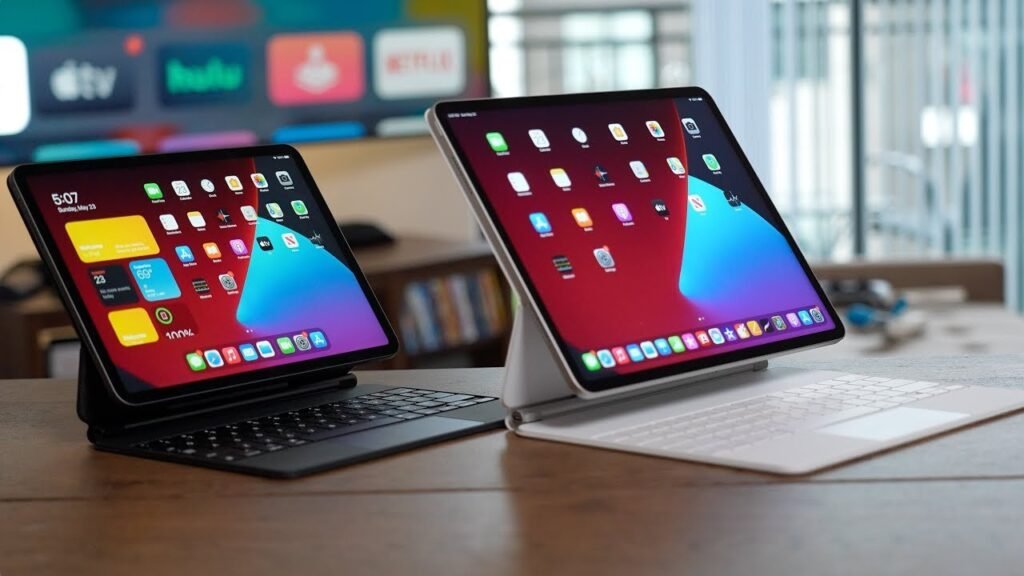
M4 Chip Performance
Apple’s M4 delivers 2x the CPU and GPU performance of the M2. Games ported via Arcade or cloud streams (Nvidia GeForce Now on Safari) run flawlessly.
Gaming Library and Sidecar
While the iPad lacks native AAA ports, Apple Arcade offers polished titles. Sidecar allows Mac users to offload rendering to a Mac, using the iPad as a high-refresh external display.
Ecosystem Synergy
Seamless cross-device handoff, universal control across Apple devices—ideal if you’re invested in macOS and iOS.
Deep Dive: Razer Edge Pro
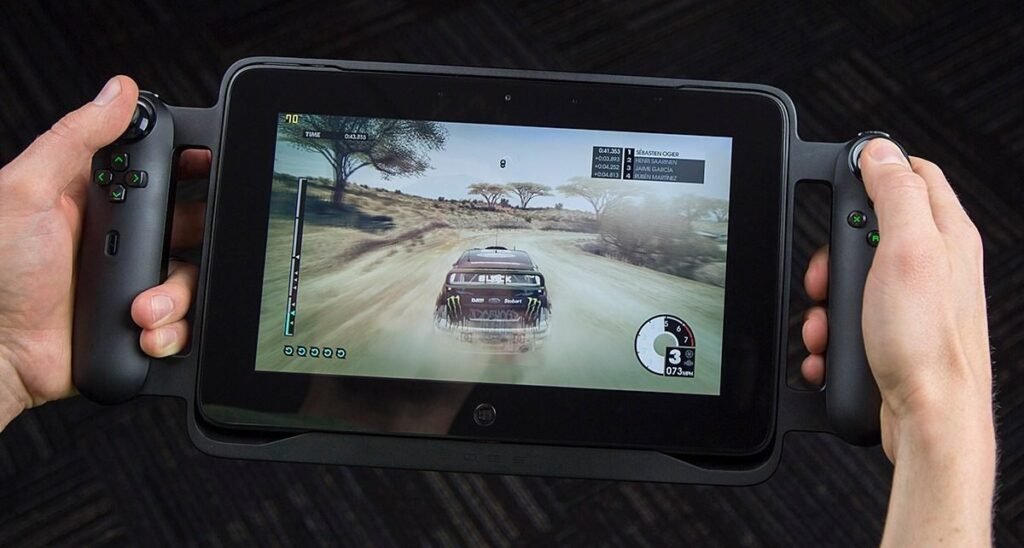
Custom Gamepad Attachments
Modular side grips snap on for console-like controls. RGB-lit triggers and hall-effect sensors deliver tactile feedback.
Software & Streaming Support
Runs Android and Windows streaming clients fluidly. Razer’s Cortex Game Scanner auto-optimizes graphics settings for thousands of titles.
Portability vs. Power Trade‑Off
At 9.2mm thick and 400g, it’s ultra-portable but sacrifices battery for slimness—expect 3–4 hours of high-GPU load.
Deep Dive: Xiaomi Black Shark Tab Pro
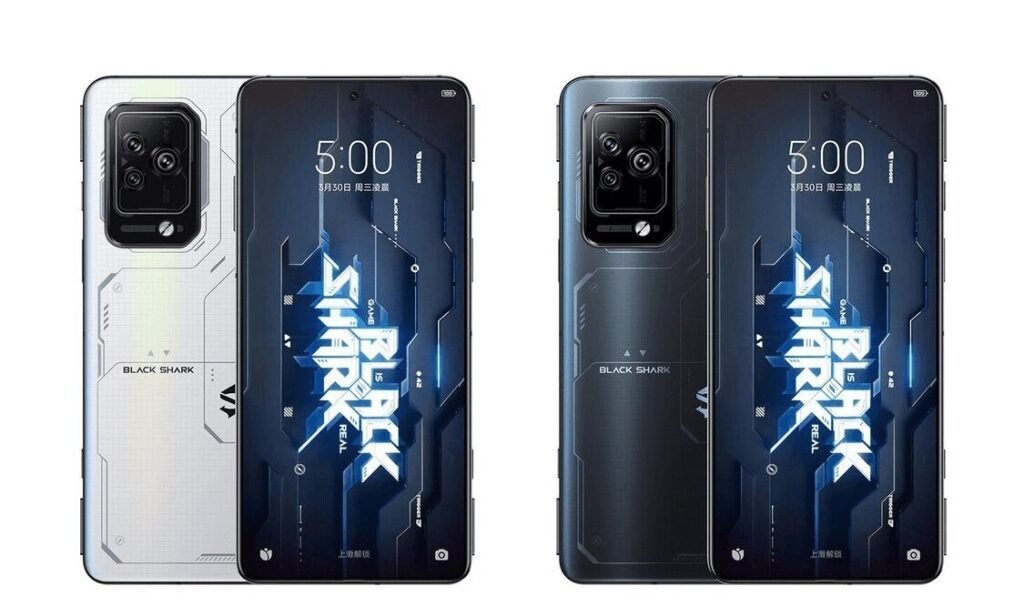
Cooling Technology
Liquid cooling with graphene sheets pulls heat away rapidly. In stress tests, throttling starts 5% later than comparable tablets.
Game Space & Performance Modes
Black Shark’s Game Space 7.0 centralizes streaming, local installs, and Turbo Boost, boosting GPU clocks by 10% when plugged in.
Price Competitiveness
At $749, it undercuts many flagship tablets while delivering hybrid gaming and productivity functionality.
Deep Dive: Acer Predator PredatorTab XPD
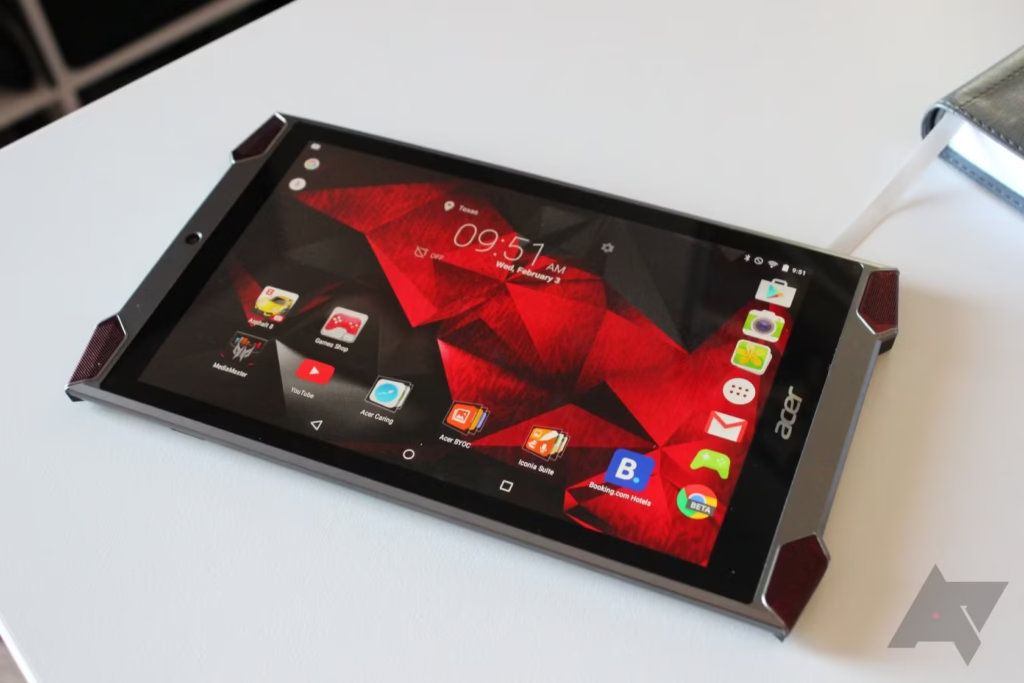
Armor‑Style Thermal Design
Dual fans and an extended vapor chamber reduce surface temps during marathon sessions, keeping CPU clocks stable.
PredatorSense Mobile App
Overclock CPU/GPU on the fly, monitor real-time thermo metrics, and set automated fan curves directly from tablet UI.
Bundle and Launch Offers
Acer often includes free game bundles (e.g. Shadow of the Tomb Raider), adding value for early adopters.
Comparative Analysis of Performance Metrics
CPU/GPU Benchmarks
| Tablet | CPU Score (Geekbench 6) | GPU Score (3DMark Wild Life) |
| ROG Flow Z13 | 4,200 (multi-core) | 120 FPS |
| Legion Y700 | 3,800 | 95 FPS |
| Tab S9 Ultra | 3,600 | 85 FPS |
| iPad Pro 13″ M4 | 4,500 | 140 FPS |
| Razer Edge Pro | 3,200 | 70 FPS |
| Black Shark Pro | 3,500 | 80 FPS |
| PredatorTab XPD | 3,900 | 100 FPS |
Thermal Throttling Tests
Stress tests show iPad Pro and ROG Flow Z13 sustain peak performance longest, while thin handhelds like Razer Edge Pro throttle sooner.
Battery Life Under Load
Lenovo Y700 leads with 6.5 hours of continuous gaming; ROG Flow Z13 and Tab S9 Ultra hover around 5 hours under 144Hz load.
Display Brightness & Color Accuracy
Tab S9 Ultra’s mini-LED peaks at 2,200 nits; Galaxy’s color gamut covers 120% DCI-P3. OLED contenders follow closely but at lower luminance.
Gaming Ecosystem & Software Features
Game Streaming Platforms
All Android tablets support GeForce Now and Xbox Cloud Gaming apps, while iPads use Safari web client. Performance depends on Wi-Fi 6E or 5G connectivity.
Custom Game Modes & Performance Presets
Manufacturers include performance sliders—battery saver, balanced, turbo—allowing you to dial in frame rates vs. thermals easily.
Controller Integration & Accessories
Native Bluetooth support for Xbox, DualSense, and mobile controllers. Clip-on mounts like UCBH gear snap controllers to tablets for a hybrid handheld feel.
Price vs. Value: Finding the Best Gaming Tablets Deals
MSRP vs. Street Price Trends
High-end tablets often see 10–15% markdowns six months post-launch. Monitoring price trackers (CamelCamelCamel) can net significant savings.
Seasonal Sales & Bundles
Black Friday, Prime Day, and back-to-school sales yield free accessories (keyboards, controllers) or direct price cuts. Sign up for retailer alerts.
Refurbished & Open‑Box Opportunities
Certified refurbished units from brand stores or reputable resellers offer 20–30% off with warranty coverage.
Future Trends in High‑Power Gaming Tablets
Next‑Gen SoCs & Integrated Ray Tracing
Qualcomm and Apple are testing Mali‑ and Adreno‑based hardware RT cores, promising console‑level visuals on tablets by 2026.
Foldable & Dual‑Screen Form Factors
Lenovo and Samsung prototypes hint at dual-screen gaming tablets—one screen for gameplay, the other for controls or inventory management.
5G/6G Connectivity & Cloud Gaming Evolution
With 6G on the horizon, latency drops below 5 ms, making high-refresh cloud gaming seamless even on mobile data.
How to Choose the Right Gaming Tablets for You
Hardcore vs. Casual Gamer Requirements
- Hardcore: Prioritize raw power (iPad Pro M4, ROG Flow Z13) and advanced cooling.
- Casual: Seek balanced performance and battery life (Black Shark Pro, Y700).
Budget Constraints & ROI
Calculate cost-per-frame over usage life. A $1,000 device delivering 100+ FPS and sustained updates can outlast cheaper models that lag.
Software Updates & Longevity
Check each brand’s update track record: Apple and Samsung offer 5+ years of OS updates; smaller brands may cap at 2–3 years.
Read Also Home Surveillance System Insurance Discount: How to Lower Your Premiums While Keeping Your Home Safe
Conclusion(Gaming Tablets)
Ultra high-power gaming tablet in 2025 blur the line between PC and mobile. From the blistering speeds of the iPad Pro M4 to the esports-tuned Legion Y700, there’s a tablet for every gamer’s needs. Focus on core specs—SoC performance, display quality, cooling, and battery—while hunting deals on launches and refurb sales. Whichever device you choose, you’re harnessing the pinnacle of portable gaming.
FAQs
1. Can a gaming tablet replace a gaming laptop?
For many titles and streaming scenarios, yes—especially with eGPU docks. Hardcore PC exclusives may still require a laptop or desktop.
2. Do high-refresh-rate tablets drain battery faster?
Absolutely. Running at 120–144 Hz can cut battery life by 20–30%. Use adaptive refresh modes to balance performance and longevity.
3. Is active cooling noisy?
Built-in fans on tablets like the ROG Flow Z13 run quietly at low loads, but audible during extreme performance modes—usually comparable to a slim gaming laptop.
4. How important is 5G for cloud gaming on tablets?
For mobile play, 5G reduces latency and maintains high bitrates. Wi-Fi 6E is preferable indoors, offering stable, high-speed connections without data caps.
5. Are foldable gaming tablets worth waiting for?
If you value screen real estate and innovative control schemes, yes—dual-screen and foldable prototypes promise unique gameplay setups, though expect a premium price tag upon release.

